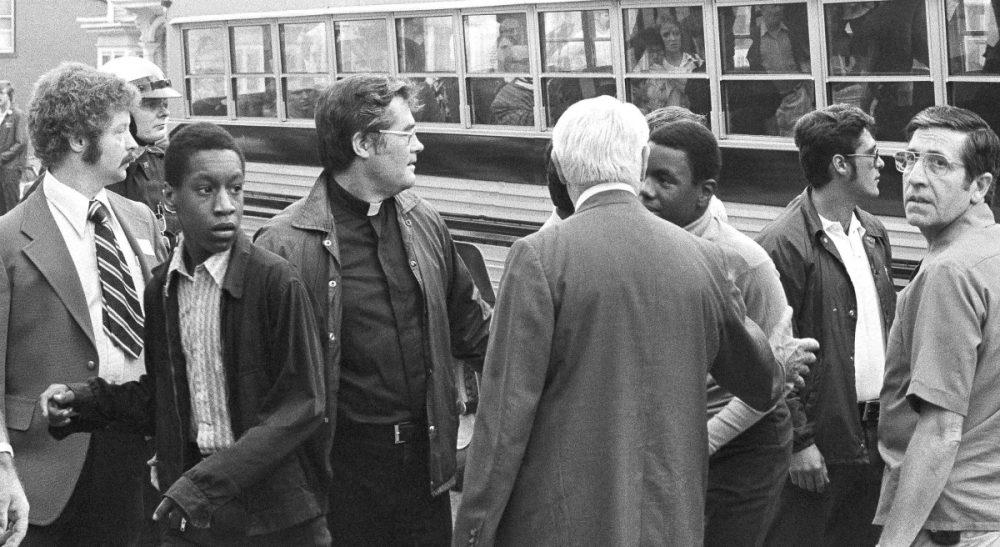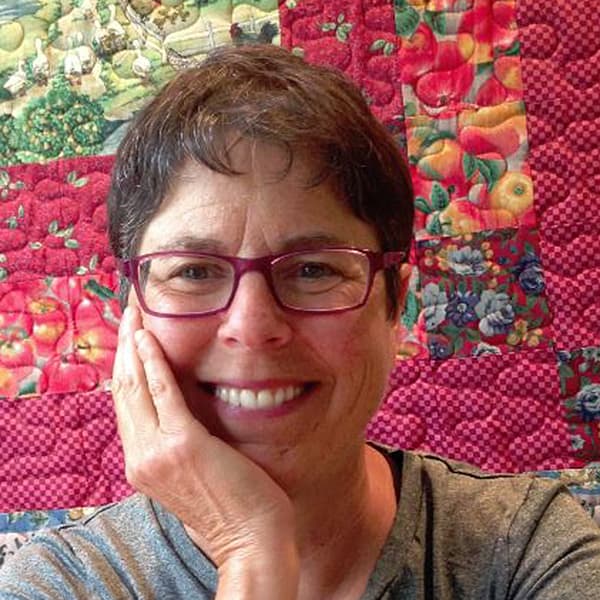Advertisement
40 Years After Busing, A Question Still Haunts A Former Passenger

Two men were exchanging stories – not in a bar, but in a homeless shelter. One was a staff member, the other a guest who’d been sleeping there for weeks. The staff member had grown up in a Boston suburb, the homeless man in Dorchester. They were reminiscing about the 1970s, when the guest had been bused into one of the first integrated schools.
Every morning, he said, the bus took off from the projects and drove to South Boston. They passed people standing on the curbs, some holding rocks. Before reaching the first intersection, the driver would instruct the kids to crawl under their seats. Then he would turn the lights inside the bus off, and the NOT IN SERVICE sign outside the bus on. Every afternoon, it was the same lightless trip back, a smuggling operation – but not a successful one. Rocks were thrown, anyway.
Before reaching the first intersection, the driver would instruct the kids to crawl under their seats. Then he would turn the lights inside the bus off, and the NOT IN SERVICE sign outside the bus on.
The staff member shook his head. His had been a suburban childhood, 15 miles and a racial demographic away. The two agreed on a few rote phrases: Boston busing, that complicated, well-intentioned, woe-begotten chapter of local history.
The guest had gone on to drugs and recovery, working and not working, leaving Boston, coming back. Boston itself had gone on to integration, disintegration and reconfiguration. The projects were middle class and softer, he was poorer and harder, his problems were less political and more personal.
Then – maybe it was their common origins – he made a sheepish confession. There was a question that used to haunt him. It had nothing to do with making history, and he knew the answer now. But he had struggled with it throughout his childhood.
“How,” he said — in the deep voice of a man who, when he was a little boy, did not understand that a dark, empty-appearing school bus driving each morning and afternoon at the same hour along the same streets of South Boston fooled no one — “how,” he said, in the sudden voice of that little boy, “did they know we were in there?”
Related:
